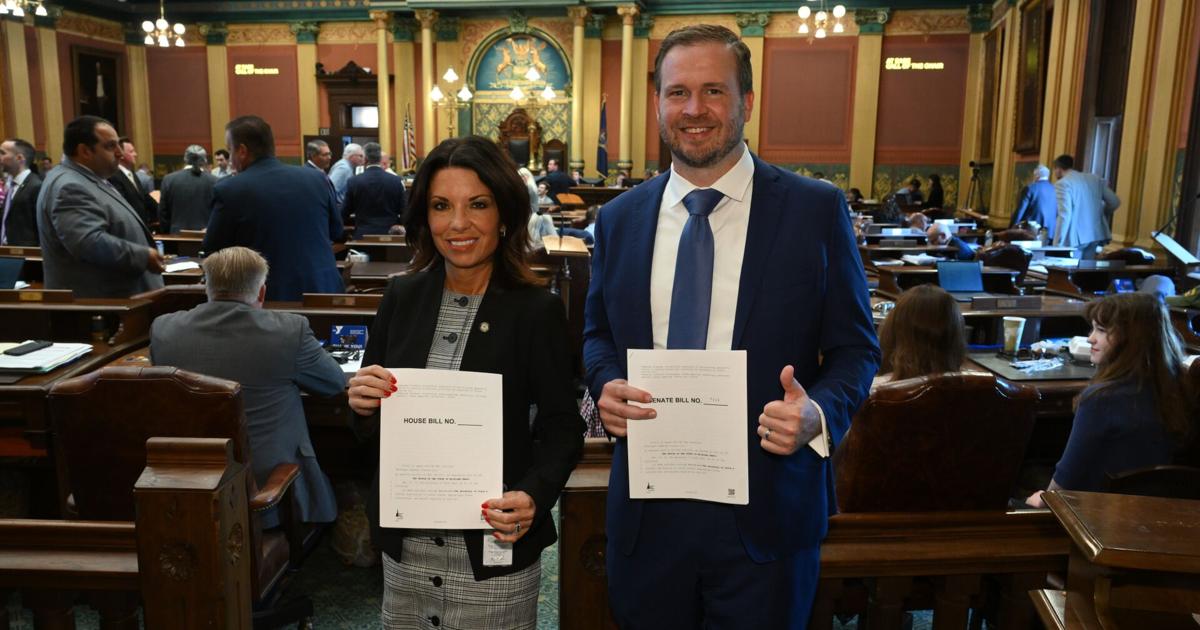Michigan Lawmakers Target Campaign Finance Loophole Affecting Secretary of State

Michigan's political landscape is set for a potential shift as state lawmakers move to address a campaign finance loophole that recently came under scrutiny in a case involving Secretary of State Jocelyn Benson. State Representative Angela Rigas and State Senator Jonathan Lindsey have jointly introduced bills aiming to tighten regulations and ensure greater transparency in campaign funding.
The proposed legislation seeks to close a specific loophole that has allowed certain political entities to circumvent existing campaign finance laws. While details of the specific loophole remain somewhat complex, the core issue revolves around the potential for indirect contributions and the challenges in tracing the ultimate source of funding for political campaigns. The recent case involving Secretary Benson brought this issue to the forefront, prompting calls for immediate action from both sides of the political spectrum.
What's the Concern? The existing laws, while intended to promote fairness and prevent undue influence in elections, have been identified as having a blind spot. This loophole has, in some instances, allowed funds to be channeled through organizations that aren't directly affiliated with a candidate, making it difficult to track the origin of the money and potentially masking the true extent of support.
The Proposed Solutions: Representative Rigas and Senator Lindsey's bills propose several key changes. These include:
- Increased Disclosure Requirements: The bills would mandate more comprehensive disclosure of campaign contributions, including identifying the ultimate source of funds, regardless of how they are channeled.
- Stricter Enforcement: The legislation aims to strengthen the powers of the Michigan Bureau of Elections to investigate potential violations and impose penalties for non-compliance.
- Clarification of Existing Laws: The bills seek to clarify ambiguous language in existing campaign finance laws, eliminating loopholes that can be exploited to circumvent regulations.
Impact and Implications: If passed, these bills could significantly alter the landscape of campaign finance in Michigan. Advocates for campaign finance reform argue that the changes would promote greater transparency and accountability, reducing the potential for corruption and ensuring a more level playing field for all candidates. Opponents, however, may raise concerns about potential burdens on political organizations and the potential for restricting legitimate campaign activities.
The Secretary of State's Perspective: While the case involving Secretary Benson highlighted the issue, she has publicly expressed support for efforts to strengthen campaign finance laws. Her office has indicated a willingness to work with lawmakers to ensure that any reforms are effective and constitutional.
Looking Ahead: The bills are currently under consideration by the Michigan legislature. The legislative process is expected to be closely watched by political observers, campaign finance advocates, and the public alike. The outcome of this debate will have a lasting impact on the integrity and transparency of Michigan's elections.
The debate surrounding campaign finance is a critical one for any democracy. These proposed changes in Michigan represent a significant step toward ensuring that elections are fair, transparent, and free from undue influence.






